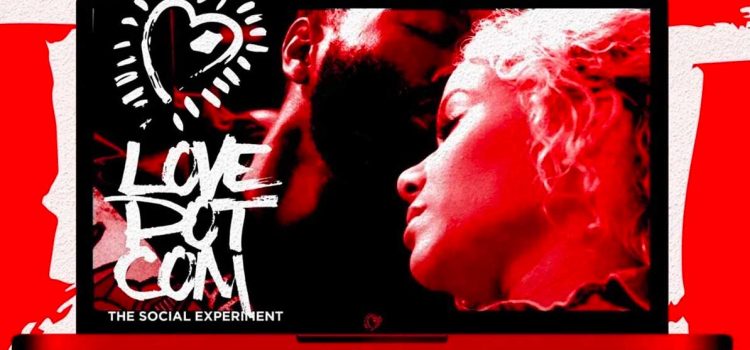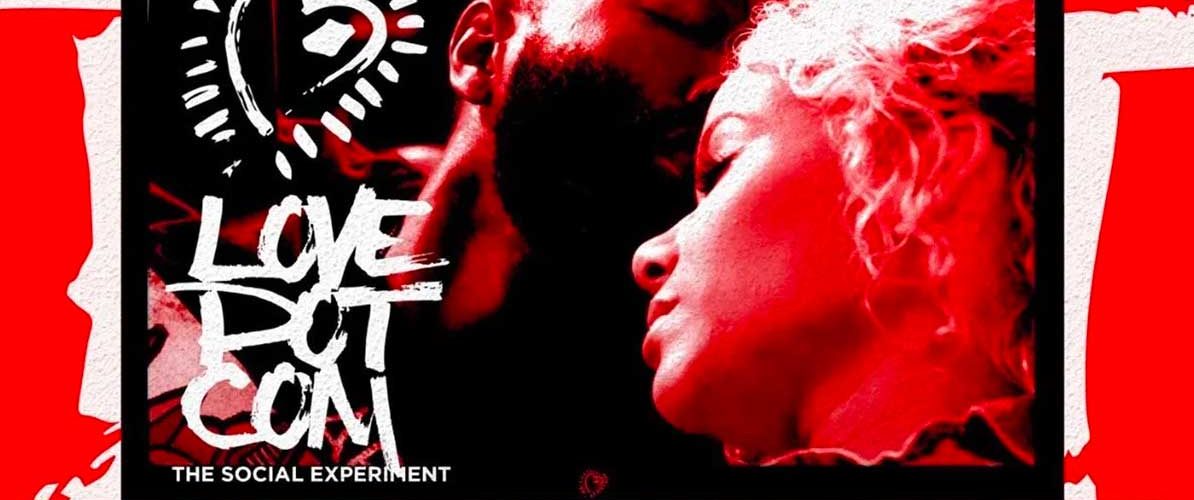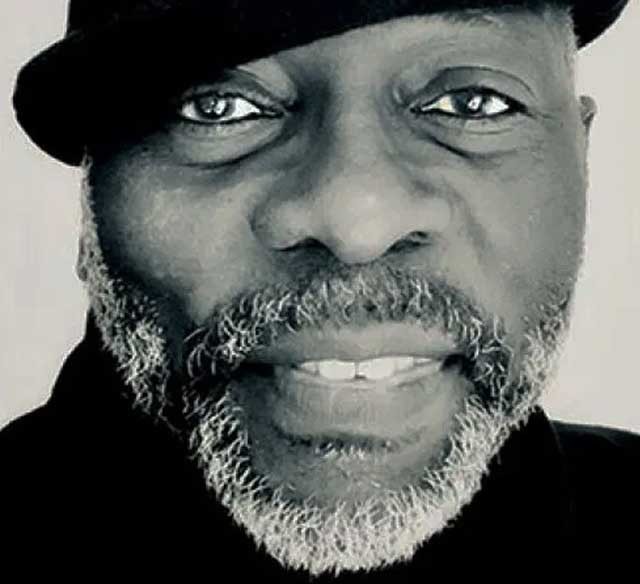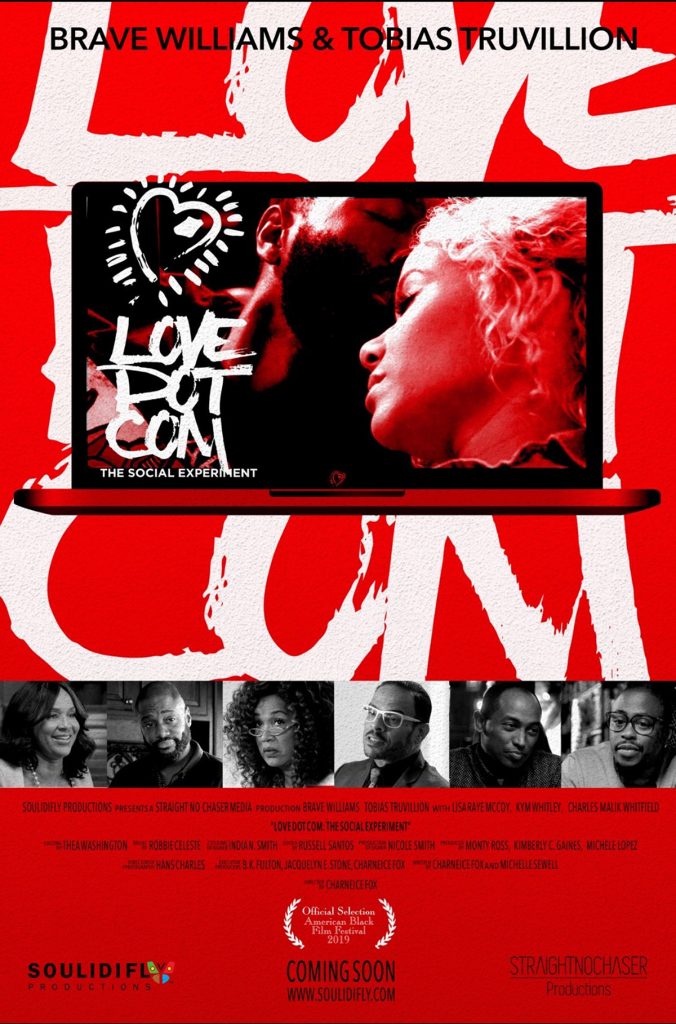

INTERVIEW: Monty Ross – A Film Producer’s Journey
FeaturesInterviews October 3, 2019 Mario Tahi Lathan

Monty Ross is part of a vanguard that took the independent filmmaking industry and world by storm, helping to make Spike Lee a household name and his production company, 40 Acres & A Mule Filmworks, legendary. Ross and Spike Lee began their relationship as teenagers when they met at Morehouse College (an experience that was later immortalized by Spike Lee's film School Daze). Both took filmmaking courses at Clark Atlanta University, Ross's alma mater. When Lee attended NYU for graduate school, he cast Ross in the starring role of his master's degree thesis film, Joe's Bed-Stuy Barbershop: We Cut Heads. As a co-producer, from the early 1980s through to the 2000s, Ross's storied collaboration with Spike Lee brought to a worldwide audience the following critically acclaimed films: She's Gotta Have It (1986), School Daze (1988) Do the Right Thing (1989), Mo' Better Blues (1990), Jungle Fever (1991), Malcolm X (1992), Crooklyn (1994), Clockers (1995), and Inside Man (2006).

In 2002, Ross ventured beyond 40 Acres and produced Keep the Faith, Baby, a biopic about Adam Clayton Powell Jr., the first African American to be elected from New York to the US Congress, starring Harry Lennox and Vanessa Williams. In 2017, he became President of Operations for Soulidifly Productions with BK Fulton, former President of Verizon, West Virginia. Their collaboration produced, 1 Angry Blackman, Love Dot Com, River Runs Red, (Line Producer), Starring Taye Diggs, George Lopez, Luke Him, and John Cusack.

In 2019, he directed The Opera Game, a period piece set in 19th century New Orleans, about the complicated life of Paul Morphy, a child chess prodigy. The film won the Filmmakers Choice award at the 2019 San Diego Black Film Festival. Ross is constantly evolving, keeping in tune with the ever-changing advancement of film technology, production, business, and management. He continues to be essential in this industry that is unforgiving to those who do not keep with its pace.
A filmmaker’s journey is often fraught with ups, downs and a few more downs. Veteran film producer, Monty Ross has seen his fair share of both. As technology and storytelling are becoming increasingly intertwined in production, distribution, and investment, how does the filmmaker stay relevant? Mario Tahi Lathan sits down with Monty for bfm to discuss his experiences in the industry and advice for filmmakers on how to chart their own path.
bfm: Of course, you are known from having an integral part in co-creating 40 Acres and a Mule Filmworks with Spike Lee, producing classics like Malcolm X, Do The Right Thing, School Daze, and Mo' Better Blues. What sparked your interest in filmmaking?
Monty Ross: It sparked when I had to complete my senior project for a mass communication course at Clark College, now Clark Atlanta University. I don’t remember the title of the course. I remember asking Dr. Herbert Eichelberger, who is one of my favorite professors of film and television at Clark if I use the camera equipment for the assignment. He said, “Yes.” Two days later he and I looked at the film and he gave me notes. The same notes on film production I still use today almost 35 years later. Oh, the film I shot and directed sucked big time, but Dr. E as we called him, allowed me to use the equipment, explore my own visual concept for the film and later sat with me to critique, make suggestions and go over the key rules of filmmaking that every beginner needs to know in order to be a better filmmaker. Thank you, Dr. E!
I was one of those fans who can say movies made a positive impact on my life as a teenager and later as an adult and of course as a filmmaker.
Film producer Monty Ross
bfm: You came of age in the 70s. Black independent cinema was emerging on the heels of Melvin Van Peebles with Sweet Sweetback’s Baadasssss Song. And of course, there was Shaft. What were you watching?
Monty Ross: I watched everything! My mom was open-minded when it came to film choices. My older sister, Deborah and I saw a variety of movies at the Ritz Theatre in Omaha, Nebraska. Here’s my shortlist which includes movies I liked during that time period: Lady Sings The Blues, Mahogany, Shaft, Shaft TNT, Superfly, Car Wash, Corn Bread, Earl and Me, Guess Who’s Coming to Dinner, Nigga Charlie, Claudine, Sounder, In the Heat of the Night, The Godfather, The Godfather II, Beach Party Bingo, The Sound of Music, The Legend of Billy Jack, Cooley High, D.C. Cab, and Sparkle come to mind. I stayed away from horror films with the exception of The Exorcist.
bfm: What impact did these films have on you? First as a fan, and then later as a filmmaker.
Monty Ross: Films and their impact as I experienced it while sitting there in front of a large screen, meant I could escape into the world of an entire story from beginning to end that offered an impressionable teenager great solutions and positive outcomes. In most cases, to personal and societal issues confronting the Black community. I discovered films could be persuasive, informative, educational, sexy and entertaining. For example, I learned how to achieve a goal, solve a difficult family dilemma, how to fall in love, or fall out of love, take a stand against evil and root for justice or just be entertained for entertainment’s sake. Movies have that type of impact! I was one of those fans who can say movies made a positive impact on my life as a teenager and later as an adult and of course as a filmmaker.

bfm: You’re primarily known as a producer. But people don't realize you dabbled in acting. And for filmmakers now, sometimes you have to ask yourself: Should I be a director? Should I be an actor? How did you make the transition into being a full-fledged producer? What was that choice like?
Monty Ross: I made the transition to producing full-time when Spike Lee, offered me the position of Vice-President of Production for 40 Acres and a Mule Filmworks, Inc with a starting salary, full-benefits and a deposit for an apartment in Brooklyn, NY. I said yes because at the time I had completed production supervising, the breakaway hit, She’s Gotta Have It, (the film, released in 1986 grossed $6.5 million dollars). We filmed the movie in 12 days, stayed in his 250 square foot apartment, surrounded by equipment, film stock, the budget, notebooks and the script. After we moved to our new production office and we could afford to rent new apartments, Spike turned to me one day over breakfast and said, “Monty, I couldn’t have done this without you. You were a big part of why we were able to get the film made (SIGH) and picked up. I know you want to act, but, you know, maybe this is a sign, you know, maybe you were meant to produce movies”. From that meal and his vote of confidence in me, I felt I was in the right place. I went from production supervising to producing movies, (7 or 8 major award-winning films of Spike) and I never looked back. I do miss acting, but I wouldn’t change my career path as a producer one bit.
... emerging filmmakers must learn the art of developing a project for an audience in order to fully advance in their career goals and objectives.
Film producer Monty Ross
bfm: Do you see that attitude today?
Monty Ross: Filmmakers today know how to write, direct and produce a film. That is very evident by the large number of films that are released on the various streaming platforms, and popular websites like YouTube, but many emerging filmmakers care very little about building and cultivating an audience. It seems there is more interest placed on self-hype, being fashionably correct, posing on social media vs. listening to focus groups, hanging out in chat rooms, or arranging to meet with audiences in some type of one on one session. In short, I feel that emerging filmmakers must learn the art of developing a project for an audience in order to fully advance in their career goals and objectives. My suggestions for films to watch that pay close attention to the audience and their perspective, here’s the shortlist: My Big Fat Greek Wedding, Blair Witch, Training Day, House Party, Friday, Do The RIght Thing, and Boyz N The Hood, just to name a few.
bfm: You've worked in the independent realm, worked in the industry, and now you're back to independent. With digital technology, especially for filmmakers of color, how has access influenced present-day narratives? Before it was just film. Before you had a $100, 000 camera, now you have an iPhone that shoots 4K. Not only is your production cheaper, but your post-production is cheaper because you've got a system you can use at home. How has that changed the process?
Monty Ross: If you use an iPhone, now you can deliver video content to a client using the same exact production to post-production process major directors use to deliver content to a major distributor. Adobe makes a variety of apps and software that allow for customized or preset effects that take a project from amateur to professional status in seconds. Garage Band and Final Cut Pro are great apps to use as well for post-production. Customized music arranged, composed and written by a solo musician that sounds as if an orchestra has recorded the score for a film is not out of the question. These tools, apps, and software are wonderful to use, to deliver great content, even if the film was shot on an iPhone.
Be creative, and most importantly, seek the advice of marketing and industry professionals who have great experiences developing campaigns that have actually influenced audiences.
Film producer Monty Ross
bfm: The filmmaker has told the story. Doesn’t matter if you have Denzel cast, doesn't matter if you have Joe Blow from film school. The next step is the marketing and distribution of the product. A couple of decades ago, you had the word of mouth with The Blair Witch Project, which was the beginning of even using cellular phones for texts. Now, the fan base is like, “Oh, there’s a million YouTube likes, this trailer to the movie has to be good. So I have to watch it.” With Twitter, Facebook, and Instagram, how has social media affected the way in which are films being marketed, generating buzz?
Monty Ross: Social media has affected how films are being marketed, generating impressions and great buzz because the device that is primarily used to reach the fan is usually in their hand, their cell phone. That makes the content to promote the film available immediately. Laptops, desktops and traditional forms of print media are still used to reach audiences, however, filmmakers like Hollywood Studios know that in order to be successful reaching an audience, both traditional and new approaches have to be utilized to persuade fans to leave their homes and come out and support a film. So, be creative, and most importantly, seek the advice of marketing and industry professionals who have great experiences developing campaigns that have actually influenced audiences.
bfm: Cool, any last words?
Monty Ross: Strive to make great films that deliver audience impact. Don't be afraid to make mistakes toward that effort because as quiet as it’s kept that is how most industry professionals learned what to do and what not to do in order to master their craft and become a highly-skilled professional with a stellar reputation for delivering high-quality movies.
Mario Tahi Lathan is a filmmaker residing in Los Angeles at the moment. When he isn’t re-watching episodes of Mickey Mouse with his son, Mario is often studying the culture of all things jazz. His latest film This Is The Bash (www.thebashfilm.com) on Haitian jazz sensation, Jowee Omicil, is touring the festival circuit.



